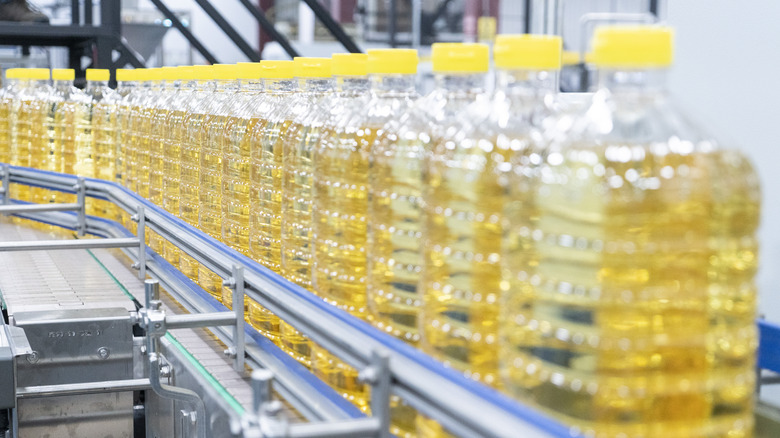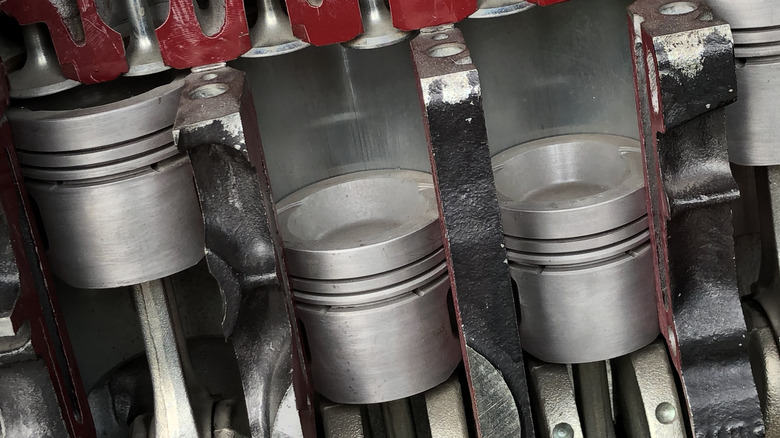Can You Really Use Vegetable Oil As A Diesel Substitute?
It's no secret that gas is expensive, and very rarely does it decline in price for long. To counteract the damage done by fossil fuels, scientists are working hard to make it less essential for daily life. There are even some interesting renewable energy sources being explored these days to help out in different settings. Since diesel fuel is especially pricey and useful in more ways than one, it's no surprise that folks are eager for stand-in products to come along. Some are even of the belief that vegetable oil can be used as a diesel substitute.
So, is there any merit to this seemingly out-there idea? In simplest terms, no, off-the-shelf vegetable oil is not a good diesel alternative for even the most reliable diesel trucks of all time, yard equipment, or generators. According to the U.S. Department of Energy, research has shown that in the long term, vegetable oil can lead to serious engine damage. Carbon buildup occurs quickly, resulting in reduced engine efficiency and the need for costly repairs. Even if blended with diesel fuel, this issue is still present, making standard vegetable oil a risk to diesel engines at this juncture.
At the same time, just because vegetable oil isn't meant for long-term use in diesel engines doesn't mean it can't be in another form.
Vegetable oil isn't a diesel alternative, but biofuel can be
The idea of using vegetable oil as a replacement for diesel isn't one that sprung up out of nowhere. It more than likely ties back to the concept of biofuel and how it has evolved within the past several years. For those new to it, biofuel is just as it sounds, a renewable and biodegradable fuel source derived from biomass such as plants. The hope is that it can someday stand as a widespread replacement for fossil fuels, much like wind and solar energy. Per the U.S. Department of Energy, vegetable oil plays a role in some biofuels' creation.
Vegetable oil or other fats can be used in the creation of diesel engine-safe biofuel through the process of transesterification: a reaction with methanol where caustic soda is used as a catalyst. As a result of this process, the viscosity and boiling point — two of the main culprits behind the aforementioned problematic carbon buildup — of vegetable oil is reduced to a level similar to standard diesel fuel. Unfortunately, biofuel is nowhere near the point of widespread use, though strides are being made to ensure it becomes more commonplace in the coming decades.
There are some differences between biofuel and diesel, but these differences are nowhere near those between vegetable oil and diesel. It's for the best to avoid fueling up diesel engines with regular vegetable oil, as, unlike with biofuel, it will cause more harm than good.

